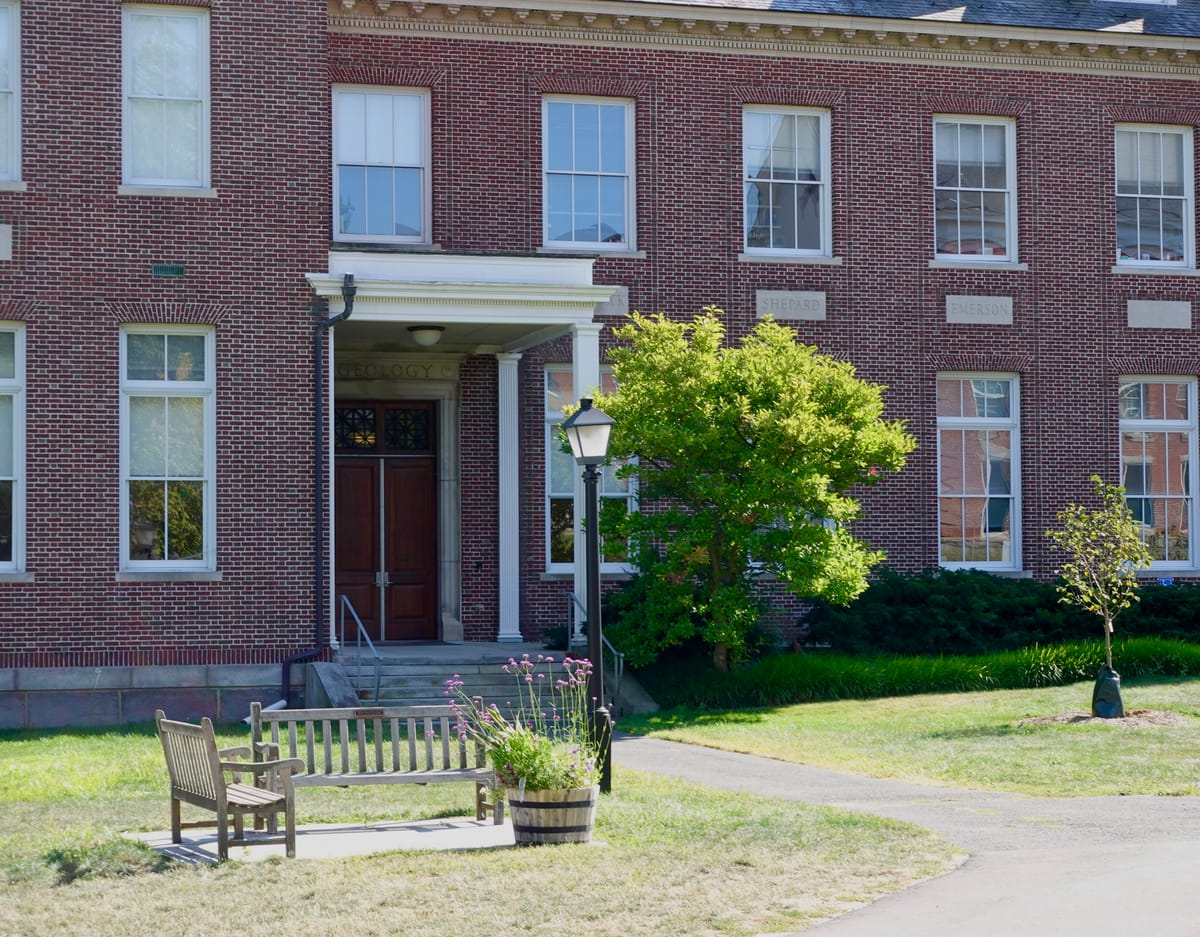College Discontinues Arabic Language Courses
Amherst College will no longer offer Arabic instruction, citing the Five College Provosts’ unanimous vote to terminate the Five College Arabic Language Initiative. The decision was made primarily due to low enrollment.

Starting next semester, Amherst will no longer offer Arabic language courses. At a faculty meeting on Friday, Provost and Dean of the Faculty Martha Umphrey said this decision was due to the termination of the Five College Arabic Language Initiative — a program created in 2011 to offer Arabic courses to all consortium students.
Umphrey explained that Five College provosts voted unanimously to end the Five College Arabic Language Initiative primarily due to “remarkably low” enrollment. While it is unclear how many students take Arabic across the consortium, The Student reviewed course enrollments during this semester and found 15 students were enrolled in four Arabic courses at Amherst.
While Mount Holyoke College will also end its offerings, Smith College and the University of Massachusetts, Amherst, will continue to offer Arabic language classes. Hampshire College did not have any Arabic courses.
Assistant Professor of German Hannah Hunter-Parker was concerned that using enrollment rates as a metric to evaluate the effectiveness of a program could hurt language education at the college more broadly. She said that there is a “pipeline problem,” because language learning at the high school level has declined in recent decades, and students do not have access to many language offerings before coming to Amherst. However, Umphrey said that language education was important at Amherst and that there were other factors besides enrollment, such as retention rates, that influenced their decision to discontinue the Arabic program.
Umphrey said that, despite the federal administration targeting Middle Eastern studies and related courses, this decision was not political.
“I worry certainly about the perception that this is a political decision, which it is not,” she said. “It is a decision that really has to do with the lack of success in the program.”
Professor of Anthropology Chris Dole, who helped create the Five College initiative, agreed that the program had substantive issues, but said that the decision to disband the Five College Arabic Language Initiative did not mean that Arabic at Amherst also had to end.
For example, Umphrey noted that a similar Five College initiative supporting the Russian language ended, but Amherst has continued to offer Russian language courses. However, she said that there was less departmental support for Arabic than for Russian.
“It’s important that we take departmental governance … departmental planning into account,” she said.
Arabic language courses are currently housed in the Asian languages and civilizations (ASLC) department, which covers Asian cultures, societies, and histories, as well as offering courses in Japanese and Mandarin Chinese. Department Chair of ASLC Timothy Van Compernolle hoped that Arabic would return to the college at some point.
“We have long struggled with [being situated in a] liberal arts college with a small faculty — how to teach languages other than Chinese and Japanese,” he said. Van Compernolle explained that the department is currently undergoing a self-study and will have an external review next semester to determine how to better expand and balance its curricula.
“We will be trying to figure out how to keep language central across all of the regions covered by the department,” he said.
Senior Lecturer in Arabic, Mohamed Hassan, condemned the college’s decision.
“Shutting down the Arabic program at Amherst after this semester is a huge loss in many ways.
Arabic Language courses have been offered at Amherst College for decades,” Hassan said in a statement to The Student. “Like any other language, Arabic has a unique and rich history that is intertwined with literature, film, art, architecture, political science, anthropology, religion, [and] history in the Middle East region. Learning the language is a gateway to all these areas and beyond, especially now as the need for intercultural awareness is more crucial than ever.”
Noor Rahman ’26 agreed and said that the Arabic program was a valuable part of her Amherst experience, giving her advanced language skills.
“If anyone is claiming that this program is ‘ineffectual,’ that is completely incorrect,” she said in a statement to The Student. “When I studied abroad in an Arabic language program after just two semesters of Arabic instruction, I was more advanced in reading, writing, and speaking than many peers from other institutions who had already been taking Arabic for two years or more.”
Rahman also critiqued the reasons given for disbanding the program.
“If enrollment in classes is low, that is the symptom of a top-down culture of devaluing the humanities at Amherst, and language in particular — a culture which is exemplified by this decision,” she continued. “The mistake the college is making by cutting the Arabic program cannot be overstated.”





Comments ()